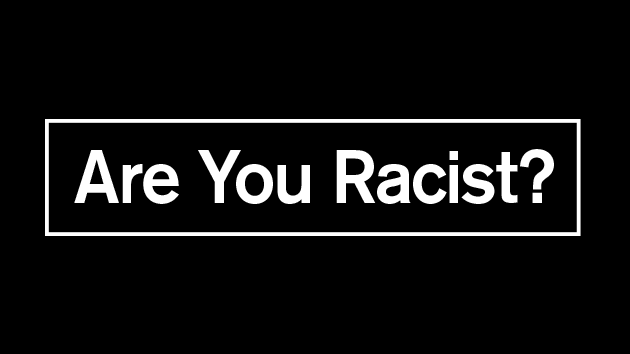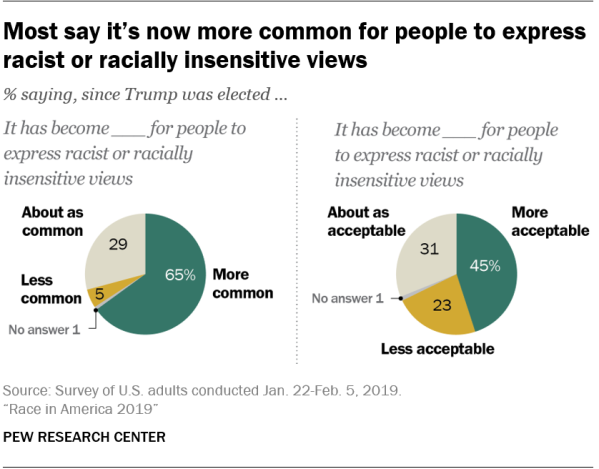Image courtesy Mother Jones
Regardless of your role at work, you may have been either the recipient or facilitator of racism and discrimination in your life or organization. A conversation about “anti-semitism, unwanted sexual advances, or misunderstandings about LGBTQ lifestyles, marginalizing others is poison for your company.” How well one communicates discrimination and unconscious bias will define one’s impact as a leader. But, even more disconcertingly our behavior as humans.
When confronted with racist comments or behaviors what do you do? Walk away, smile or comment or simply indicate indifference?
Any organizational role we play will impact the team. However, few as much as a leader. Marginalization and discrimination impede the progress of teams and reduces the competitiveness of the organization.
In Mother Jones, researcher David Amodio asserts, “You’re not, like, a total racist bastard,” He pauses. “Today.”
Race in any country and organization is not going away. We can’t assume it doesn’ exist because no one reports it. It is a conversation that makes us feel uncomfortable especially when it comes to our personal biases, stereotypes, and prejudices.
Many of us would like to think that when it comes to unconscious bias, we don’t have any at all.
The Implicit Bias Test is a fine indicator for measuring an automatic racial preference that affects behavior. For example, many whites will show a preference for whites over blacks. This means if you are white you have picked up an unconscious bias that is prevalent in society. Now, one-third of blacks taking this test show a white preference. Meaning they have also been exposed to this “white “dominance in our country.
In an April 2019 study Pew Research Center expressed, “When asked about specific situations they may have experienced because of their race or ethnicity, blacks are much more likely than other racial and ethnic groups to report that people have acted as if they were suspicious of them or as if they thought they weren’t smart; that employers have treated them unfairly in hiring, pay or promotion; and that they have been unfairly stopped by police. Meanwhile, whites are the most likely to say that people have assumed they were racist or prejudiced because of their race or ethnicity, while Asians are more likely than other groups to say they have been subject to slurs and jokes.”
In the past racism was an active and open hostility against minorities. Now we know there is this automatic preference most people are unaware they have.
In Texas, a 28-year-old black woman was killed in her home by a white police officer while playing with her 8-year old nephew. Ms. Atatiana Jefferson was a pre-med university graduate who worked in pharmaceutical equipment sales.
Have you ever voiced opinions about diversity, unconscious bias, and racism? Turned the television off thinking “they deserved it?” Swore you’re not racist? Can a bias transform into prejudice? How does that impact your customer service, sales, friends, relationships and leadership skills?
University of Virginia psychologist Brian Nosek, a prominent IAT researcher said in Mother Jones, there “doesn’t need to be intent, doesn’t need to be desire; there could even be desire in the opposite direction,” explains. “But biased results can still occur.”
We’re not born with racial prejudices. We may never even have been “taught” them. But they not only exist they hamper us personally and professionally.
It’s time we have a serious conversation about the systemic problems of unconscious bias. Let’s talk.
About Jim Woods
Jim Woods is President of Woods Kovalova Group. A leadership and human resources training and development company located in Denver, Colorado. He has been an adjunct professor of business and organizational development at Dickinson College, Villanova, and Colorado Technical University.
He has a master’s degree in human resources and organizational development from Capella University. The company has a global reach with clients on every continent. We’re a leading corporate learning consultancy that helps some of the most ambitious organizations redefine their future. Our work entails working with our clients as a team with a single objective: to help them achieve the results that matter most to them.
Jim’s main area of expertise is in the improvement of leadership and management of multinational corporations, and on such specific issues as corporate leadership, innovation, unconscious bias, knowledge management, and global customer management. Follow Jim: Twitter Facebook LinkedIn

